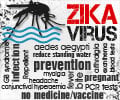FAQs on Zika Virus Alert: Rising Cases in India
1. What is the Zika virus and how is it transmitted?The Zika virus is a mosquito-borne flavivirus primarily transmitted by Aedes mosquitoes, particularly Aedes aegypti and Aedes albopictus. It can also be transmitted through sexual contact, blood transfusion, and from a pregnant woman to her fetus.
2. What are the common symptoms of Zika virus infection?
Common symptoms include mild fever, rash, joint pain, conjunctivitis (red eyes), muscle pain, and headache. Symptoms typically last several days to a week and are generally mild, but severe complications can occur.
3. How can I protect myself from getting infected with the Zika virus?
To protect yourself, use mosquito repellents, wear long-sleeved clothing and long pants, use mosquito nets and screens, eliminate standing water where mosquitoes breed, and avoid traveling to areas with active Zika transmission.
4. What should I do if I suspect I have Zika virus infection?
If you suspect you have a Zika virus infection, seek medical advice promptly. Rest, stay hydrated, and take acetaminophen (paracetamol) to relieve symptoms. Avoid aspirin and NSAIDs until dengue can be ruled out to reduce the risk of bleeding.
5. Can Zika virus infection be treated and what are the long-term effects?
There is no specific antiviral treatment for Zika virus infection. Management focuses on relieving symptoms and supportive care. While most people recover fully, severe complications can include Guillain-Barré Syndrome and congenital Zika syndrome in newborns if the mother is infected during pregnancy.










